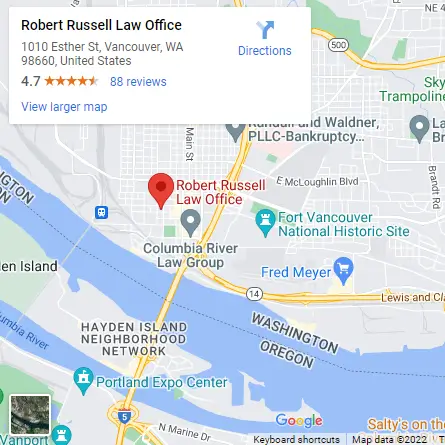The answer to this question is both short and long, of course. ;-)
Six Years
The short answer is six years from the date of default on the written agreement. RCW 4.16.040 provides that an “action upon a contract in writing, or liability express or implied arising out of a written agreement shall be commenced within six years.” The legal term for this is called a “statute of limitations.” Since they are suing on the balance due under the written card agreement, the answer is six years. [Note: There is a special three year statute of limitations for the balance due on a promissory note after a completed short sale.]
From What Date?
Six years from what date? As a general rule, the six years starts to run from the last date of default, e.g., a missed payment. However, that six year period can start over if you make a voluntary payment after the missed payment. So, if a collector says, “Just send us $20 and we’ll work out payments,” they might just be trying to get the statute of limitations to start over. Be careful! It would be very bad if the statute of limitations had run and you paid them and restarted the six year period.
You Must Act – Affirmative Defense
It is important to note that the statute of limitations does not actually prevent a creditor from filing a lawsuit against you. The statute of limitations is what is called an “Affirmative Defense.” That means that if a creditor sues you on a debt where the statute of limitations has run, they can still get a judgment against you unless you respond and defend by asserting the “affirmative defense” that the creditor filed the lawsuit too late. If you do not raise this affirmative defense, the creditor can still get a judgment against you. So, always pay attention to all lawsuit filed against you and raise this defense when appropriate.
Absence from the State
There is another rule that may impact the running of the statute of limitations. If you have been out of the state and/or hiding from creditors, the statute of limitations might not run for the period you are hiding out of the state. See, RCW 4.16.180.
In summary, a creditor suing on a credit card has six years from the date of default to file a lawsuit. If they file a lawsuit after that, you still have to raise the affirmative defense that the lawsuit was filed too late.
Free Initial Consultation
If you have been sued, think you might get sued, or just have question on how to address a financial issue, we offer a free initial consultation on most matters. So, just contact us through this website, call us, email us, or even walk into the office. We look forward to providing any assistance you might need.



